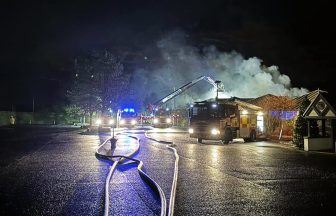One in four Scottish households – more than 600,000 – are living in fuel poverty, according to official statistics.
The Scottish House Condition Survey 2018 found 619,000 homes in fuel poverty, a rise of 36,000 from the year before.
The survey also said more than one in ten (11.3%) households are living in “extreme fuel poverty”, defined as having to spend more than 20% of income (after housing costs) on energy.
However, the total of 279,000 homes in this state is slightly down from the figure of 293,000 (11.9%) in 2017.
Charities branded the figures a “sorry state of affairs” while the Scottish Government said new anti-fuel poverty legislation passed last year would help bring down the “unacceptably high” numbers.
Director of housing charity Shelter Scotland, Graeme Brown, said: “It is shocking to think that a quarter of households face a struggle to keep their homes warm and put hot food on the table in a wealthy nation such as ours.
“While some progress has been made on the housing conditions people face, hundreds of thousands are denied their basic right of a warm and healthy home.
“We must see investment in new social homes built to good standards and improvements to the existing buildings which most people call home.”
A spokesman for Citizens Advice Scotland said: “These figures are a sorry state of affairs for Scotland.
“Over 600,000 homes in fuel poverty, and 279,000 in extreme fuel poverty shows the staggering scale of this problem.
“Every year the Citizens Advice network in Scotland helps tens of thousands of people with energy-related issues with many of them dealing with unaffordable energy costs coupled with living in homes which are hard to heat.
“The first step in tackling fuel poverty must be to help those struggling to keep their homes warm.
“That’s why in the upcoming Scottish budget we want the Scottish Government to commit to doubling spending on energy efficiency.”
Housing minister Kevin Stewart said: “Making sure everyone has a safe, warm place to call home is central to the Scottish Government’s drive for a fairer and more prosperous Scotland.
“It is encouraging to see the number of households in extreme fuel poverty is steadily falling, but numbers still remain unacceptably high which is why we introduced the Fuel Poverty Act, passed unanimously by the Scottish Parliament last year.
“It is the most ambitious and comprehensive fuel poverty legislation in the UK, setting us on a course to eradicate fuel poverty and also provide greater help for people who need it most.
“We will publish a strategy later this year setting out the actions we will take to tackle all four drivers of fuel poverty.”
He added: “Last year 15,000 Scottish households saved more than £4.6m on fuel bills as a result of energy efficiency measures installed through the Scottish Government’s schemes, such as insulation, double glazing and heating controls.
“By the end of 2021, we will have allocated more than £1bn since 2009 to tackle fuel poverty and improve energy efficiency to make homes warmer and cheaper to heat.”
Annual statistics reveal only slight changes in the fuel poverty rate over the past three years, although there has been a reduction from the peak of nearly one in three (32%), or 761,000 households, back in 2013.
Levels of extreme fuel poverty have been decreasing since the 16% figure (384,000 homes) recorded in 2013.
The Scottish House Condition Survey also looks at indicators such disrepair, overcrowding and energy efficiency in its findings.
It found the level of disrepair in Scottish houses had risen by 7% on the year before, with 75% of all dwellings having some degree of disrepair, ranging from minor to serious.
Scottish Conservative housing spokesman Graham Simpson said: “Not only do we not have enough homes generally, but the housing we do have is simply not of a high enough standard, and things are getting worse.
“The SNP has been in charge of housing for almost 13 years, and has to take full responsibility for this decline in standards.”
Overcrowding has remained static, with around 2% (53,000) Scottish households considered overcrowded.
Nearly half (49%) of Scottish households have an energy efficiency band of C or better, an improvement on 24% in 2010, while those in the lowest bands (E, F or G) have reduced by more than half from 27% to 12% over the same period.
Follow STV News on WhatsApp
Scan the QR code on your mobile device for all the latest news from around the country




























